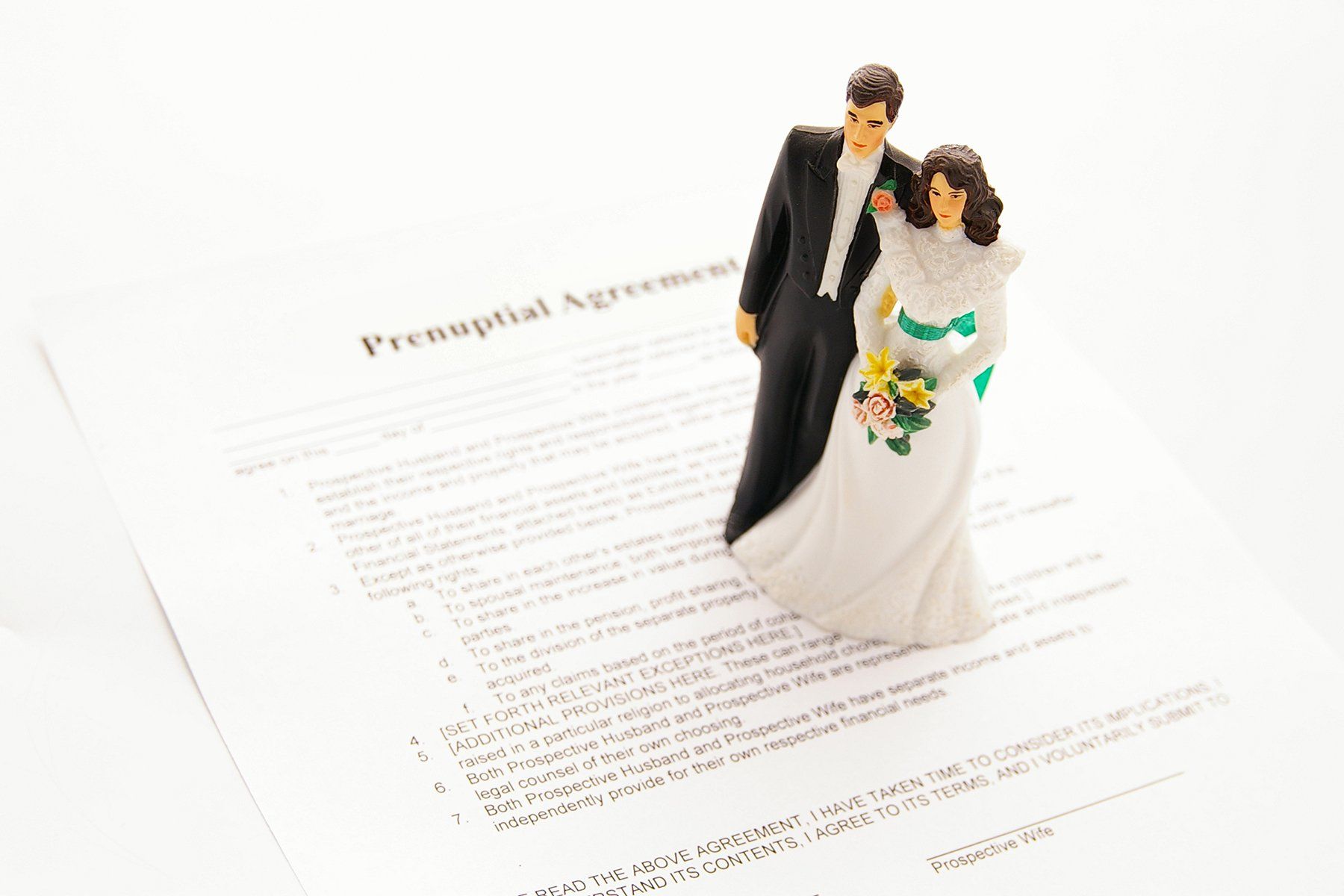Pre-Nups (and other family law agreements)
When the press pour over celebrity break-ups, the “news” often focusses on whether the couple had a “pre-nup”. If not, there will usually be a gleeful report about how much the divorce is going to cost one of them, or how much the other is going to get in the break up.
Bill and Melinda Gates is the most high profile recent example, with a lot being made of their lack of a Pre-Nuptial agreement and how much this could cost Bill Gates despite a great deal of his success being derived from purely his own individual enterprise, effort and entrepreneurship.
It raises the question: are pre-nuptial agreements valid in Scotland?
The short answer is: yes, pre-nuptial agreements are legal in Scotland.
In fact there are many types of family law agreement in Scotland - pre-nuptial agreements, post-nuptial agreement (for couples who are already married), cohabitation agreements (for couples who are living together but not married) and even separation agreements. Really all of these are simply contracts agreed between two people and the names are just helpful descriptions.
The most common family law contracts in Scotland are:
Pre-Nuptial Agreements
These are entered into by couples before they get married. They can be used to say that certain property - houses, businesses, savings, pensions (anything really) - will not form part of the matrimonial property. This means that if the couple split up, the specified assets will not be considered when dividing up the matrimonial property.
They can go a step further and protect future assets too. For example, if one person owns a house which is rented, the agreement could say that no income obtained from that house (and nothing bought with that income) will become part of the matrimonial property.
This can be particularly helpful with business assets - as in Bill Gates’ case - or with savings or investments which may mature or evolve over time.
In some cases the pre-nuptial agreement can go so far as to set out exactly how everything will be divided on divorce.
Post-Nuptial Agreements
These are basically the same as pre-nuptial agreements but completed after marriage. They can protect certain assets or income or they can determine what will happen to assets in the event of divorce.
These are particularly helpful where one party will be making a big investment or acquiring a new asset - especially a property or a business - and want their individual contribution recognised in any break up.
They can also record where, for example, one party has put more of a deposit down for an assets (most commonly a house). In that scenario the agreement will usually set out what will happen if the asset is ever sold.
Cohabitation Agreements
While cohabiting couples (couples who are living together but are not married) do not have the same rights as married couple, there are circumstances where one can make a claim against the other, or where one party contributes more financially than the other. The most common example is where an unmarried couple are buying a house and one is putting in more to the deposit (or even paying all of it).
A cohabitation agreement can set out what arrangement has been agreed so that both parties are protected and are clear what will happed in the event of the asset being sold or if they break up.
Separation Agreements
These are slightly different in that they deal with how assets are to be divided after a couple split. However, they are simply another form of contract between a couple (or in this case a former couple) that is recognised in Scots Law.
We can advise on all of these agreements and a well drafted and well thought through agreement can save literally thousands or even tens of thousands of pounds as well as a lot of stress and time at the end of a relationship - when there will be all kinds of emotions and heartache to deal with too.
Contact us on 01292 281711 to discuss this further.




